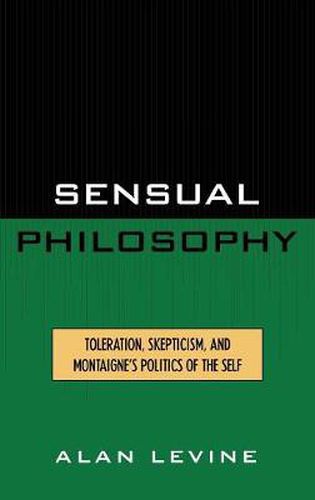Readings Newsletter
Become a Readings Member to make your shopping experience even easier.
Sign in or sign up for free!
You’re not far away from qualifying for FREE standard shipping within Australia
You’ve qualified for FREE standard shipping within Australia
The cart is loading…






The writings of Michel de Montaigne have provided rich fodder for the work of scholars in myriad disciplines: philosophers have considered his view on scepticism, historians have examined his views on the Indians, deconstructionists and literary scholars have examined his view of the self, and political scientists have touched on his arguments for toleration. However, because these projects have been done largely in isolation, many have failed to see the relationships between the various aspects of Montaigne’s thought. Alan Levine here unites Montaigne’s thought to demonstrate the significant role Montaigne played in establishing the liberal ethos in the West. In exploring Montaigne’s grounding for liberalism, Levine considers his conceptualization of scepticism and its relationship to toleration. He argues that Montaigne’s theories of self ground his idea of toleration without leaving it open to the corrosive charges of relativism and nihilism. Levine also articulates the importance of Montaigne’s thought for contemporary conceptions of personal freedom, individuality, subjectivity and self-creation by bringing him into dialogue with modern and postmodern political theorists such as Heidegger, Nietzsche and Richard Rorty. This book persuades those who might be tempted by postmodernism that they should turn to Montaigne instead.
$9.00 standard shipping within Australia
FREE standard shipping within Australia for orders over $100.00
Express & International shipping calculated at checkout
The writings of Michel de Montaigne have provided rich fodder for the work of scholars in myriad disciplines: philosophers have considered his view on scepticism, historians have examined his views on the Indians, deconstructionists and literary scholars have examined his view of the self, and political scientists have touched on his arguments for toleration. However, because these projects have been done largely in isolation, many have failed to see the relationships between the various aspects of Montaigne’s thought. Alan Levine here unites Montaigne’s thought to demonstrate the significant role Montaigne played in establishing the liberal ethos in the West. In exploring Montaigne’s grounding for liberalism, Levine considers his conceptualization of scepticism and its relationship to toleration. He argues that Montaigne’s theories of self ground his idea of toleration without leaving it open to the corrosive charges of relativism and nihilism. Levine also articulates the importance of Montaigne’s thought for contemporary conceptions of personal freedom, individuality, subjectivity and self-creation by bringing him into dialogue with modern and postmodern political theorists such as Heidegger, Nietzsche and Richard Rorty. This book persuades those who might be tempted by postmodernism that they should turn to Montaigne instead.